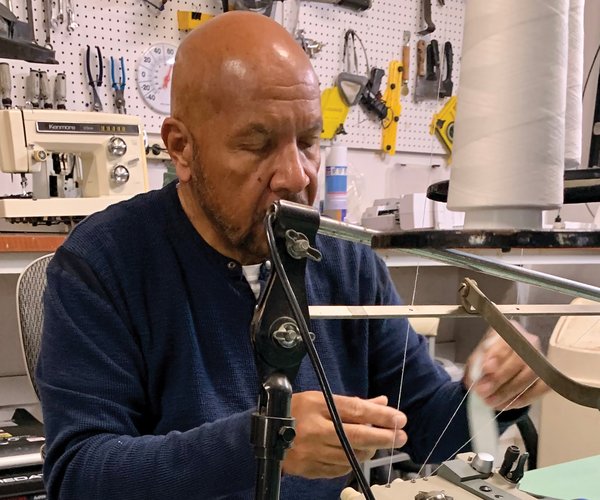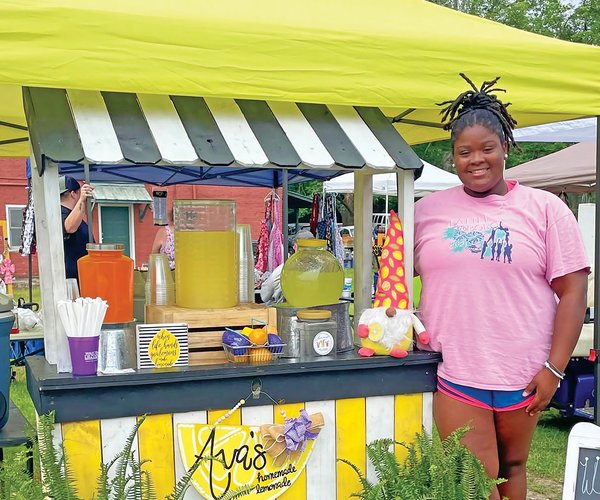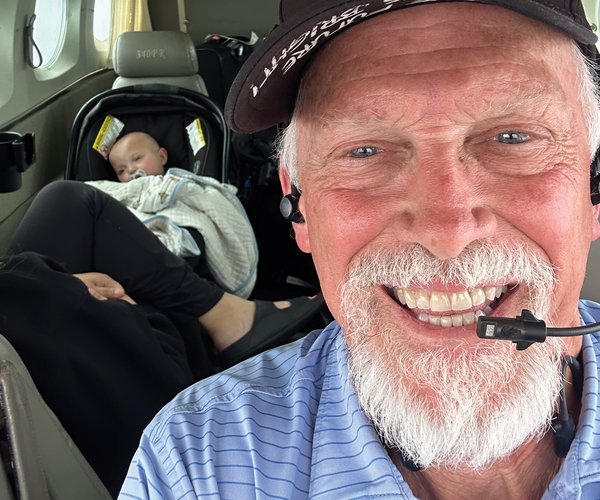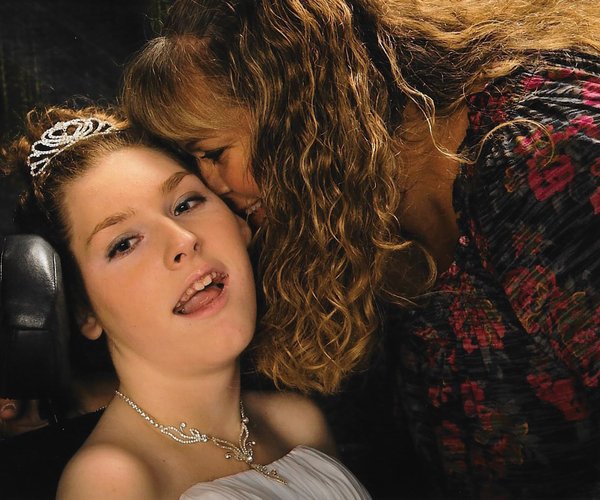Dogs are often called man’s best friend. As a dog-owner, I can confirm that they are one of life’s greatest gifts. Unending loyalty, constant admiration and a sense of security when your dog is around are some of the benefits that everyday people enjoy when they share their lives with dogs.
For a K9 handler, those benefits are increased exponentially. Sometimes a police dog saves their handler’s life; other times, the duo works together to save lives. In this case, the handler gets to reap the rewards of a loving, carefree dog at home and a tough, well-trained partner at work.
What many don’t know is that when a K9 retires from the department that it serves, the financial responsibility of that dog’s care typically becomes that of the handler. It’s extremely rare that a handler doesn’t adopt the dog that’s worked by his or her side for years. That financial burden can sometimes be substantial due to the strenuous work that K9s can do, but Cpl. Kyle Briley, 33, of the Statesboro Police Department had an idea to help relieve some of that burden.
He founded the Georgia Police K9 Foundation right here in Statesboro to not only assist handlers across the state with the care of their retired K9s, but also to supplement department funding for K9 equipment and to educate the public about K9s.
Then-Advanced Patrol Officer Briley first had the idea in early 2016. As with many great ideas, there was inspiration based on a situation he could relate to. Statesboro Police Department K9 Bruno retired due to medical reasons, and his handler, Sgt. Andrew Samples, took on the financial responsibility for his care until Bruno’s passing in 2020.
“It is not uncommon for departments across the nation to not have a retirement budget in place for when their K9s retire to their handlers,” Briley said. “I felt there was room for improvement in this area and quickly realized there was more work to be done for our working K9s in the state of Georgia beyond retirement.”
The foundation originally started as a way to serve retired K9s, but in 2018, expanded its mission to include active duty K9s.
The inspiration first hit Briley during a training class, and he began to visualize the impact and legacy that could be created for K9s both locally and statewide. He approached the Altrusa Club in Statesboro to talk with them about how they could support the foundation. The group had always been supportive of the K9 program and they “bought into the idea of the foundation immediately.” The Altrusa Club paid for the foundation’s state registration fee to get things started. Briley says he’ll never forget their encouragement and support.
Briley and his four-legged partner since 2014, Rio, a 9-year-old German Shepherd, single purpose narcotic detection K9, serve and protect Statesboro alongside seven other K9s in Bulloch County. Rio is certified in identifying and pinpointing the odors of meth, marijuana, heroin, cocaine and ecstasy.
Briley says that the number of lives K9s touch would surprise many people.
“K9s play a vital role in everyone’s life. Before any large gathering, sporting event, traveling, theme park, etc., K9s are utilized to assist keeping the general public safe. K9s are willing to go into situations most humans are not to apprehend a violent criminal who has or wishes to do harm on the general public. K9s’ mere presence alone can deter crime from occurring,” Briley said.
Also at the SPD are APO Brice Scott and lab Mono and bloodhound tracking K9 Smokey and his handler, APO Patrick Webb. At the Bulloch County Sheriff’s Office, Sgt. Ryan Norton and K9 Dutch, Cpl. Mark Guarino and K9 Gismo and Cpl. Dustin Lanier and K9 Pike serve dual purposes. All three of the K9s at the BCSO are trained to track and find narcotics and apprehend suspects when needed. On the campus of Georgia Southern University, bomb-detecting K9s Bear and Rocky help to keep the students and faculty safe.
Just like their human partners, K9s have to continue training throughout their careers.
“People are often surprised to know how much continued training is required to maintain a proficient K9,” Briley said. “K9s are highly trained and elite but the training never stops. Our K9s are our partners that love to work and need to be trained consistently.”
These highly trained animals can cost up to $13,000, so they are an investment for departments to take on. The training, vet care, and equipment needs increase that investment even more, but with all the ways the K9s touch lives, they are definitely a worthy investment.
“When people hear these stories and it relates to them, they really appreciate what our four-legged heroes do on a local, state and federal level. People are surprised when they hear about how the K9s come home with us and are basically a member of the family. Our K9s are treated very well by our agencies and have never gone without anything with the assistance of the foundation,” Briley said.
Briley’s everyday job as a K9 handler offers him the opportunity to give public education on a daily basis, but he supplements that with public speaking to groups and talking about the history and purpose of the foundation.
In 2020, he even went as far as to sit in a parked car for 30 minutes with the windows only cracked to show the effect of heat on a human and to urge viewers to not leave their animals in parked cars ever — but especially during the summer months. As assets to their departments, K9s are usually protected with heat alarms inside the cars and the foundation helps to provide those alarms.
“We assist active K9s by providing vests, heat alarms, protective equipment, proper training equipment, proper training, and much more. We have assisted over 1,000 K9s in our mission,” he said. “We assist numerous retired K9s in several different ways. We also have the first and only in the line of duty death K9 memorial monument located at the state of Georgia training facility in Forsyth, Georgia.”
The Georgia Police K9 Foundation has support from all around the state of Georgia and has supported departments all around the state. Its roots are here in Statesboro as well as many of their board members, but their influence has gone national. They’ve also inspired the creation of foundations in other states — to name a few, Maryland, Florida and Nevada.
The Board of Directors of the foundation is a prime example of the support that the Statesboro community gives to the foundation. Six of the 10 directors are from Statesboro. And the board members aren’t all involved in law enforcement, they just believe in the cause.
“I think people often see the end product or results from our foundation. This has come with a lot of hard work from our board members and sponsors, along with supporters throughout the nation. We do things a little differently than others and it can be a lot of hard work and the results are truly remarkable,” Briley said.
He knows that community support is vital to the foundation’s mission.
“It is very encouraging to be a part of a great community within the city and in the county that is full of supportive businesses and community members who donate in many different ways. We really do live in a great community that gives back and wants to be a part of this growing foundation,” he said. “I think the businesses know we are here to serve them at the highest level we can as public safety officers and deputies as well as a foundation. Our handlers here give it 100% knowing the community has our backs and it makes us want to be successful for them.”
There are several ways that members of the community support the foundation. They range from direct donations, Facebook birthday fundraisers to purchasing products such as candles from Fox + Hound, plushies from Emma Loves K9s, or T-shirts and hoodies from their website. Their biggest fundraiser is their annual event, An Evening for the K9s. Held in June, the event has a raffle, a silent auction, food and drink, entertainment and meet and greets with K9s teams as well as demonstrations from those teams.
This year’s event, scheduled for June 5, will include the chance to meet K9 Mattis and K9 Eddy, dogs that participated in A&E’s America’s Top Dog competition. There will also be the chance to meet K9s Raider, Loki, Bragi, Leo, Cinder, Jax and others. Many of these dogs are social media famous with their own Instagram or TikTok followings and some of them will be travelling from across the nation from Washington state, California, Ohio, North Carolina and Florida.
The roots of the Georgia Police K9 Foundation and Briley may be right here in Bulloch County and be supported in a huge way by our community, but the impact has certainly had a much farther reach than that. More than 1,200 K9s currently work in the state of Georgia and thanks to Briley and the Georgia Police K9 Foundation, many of them are safer.





